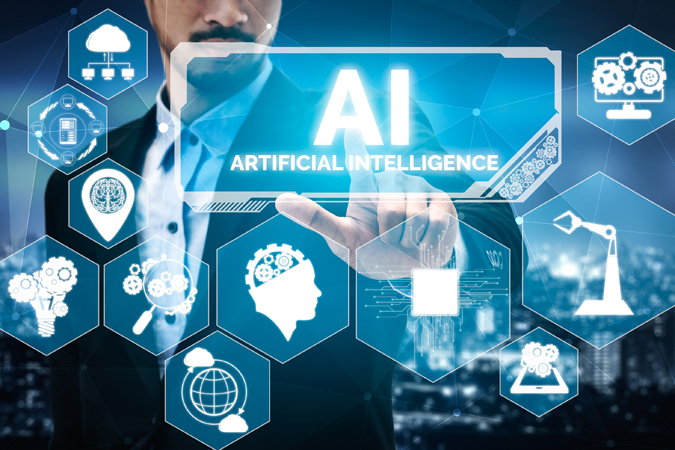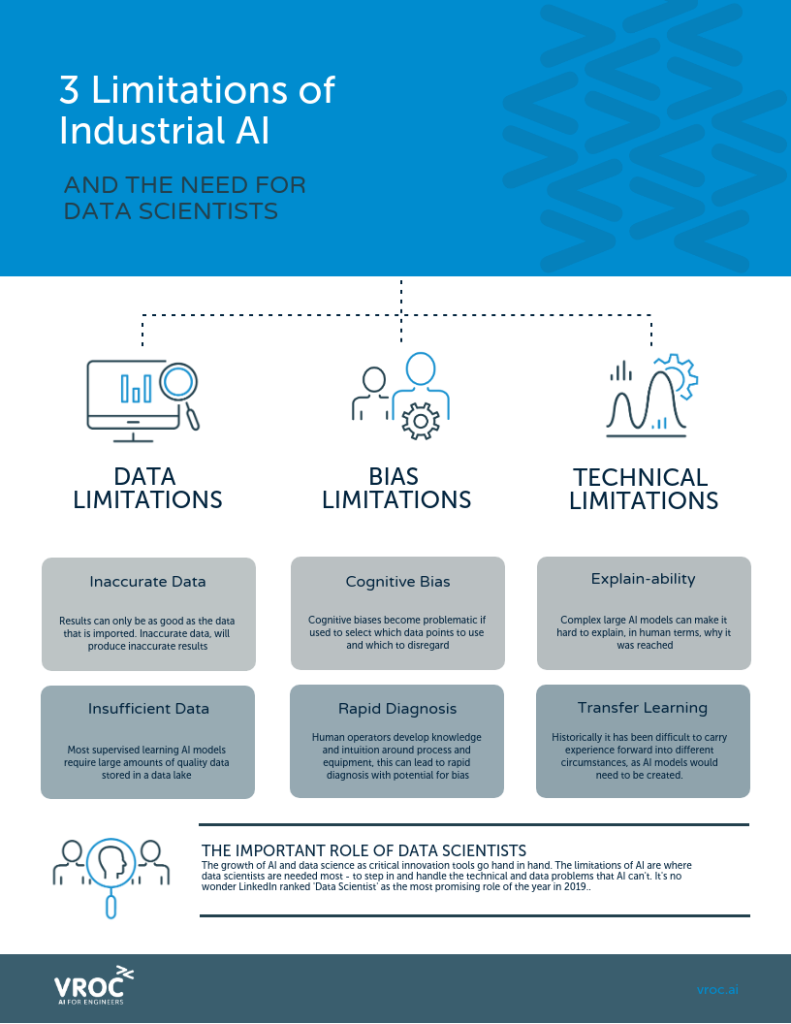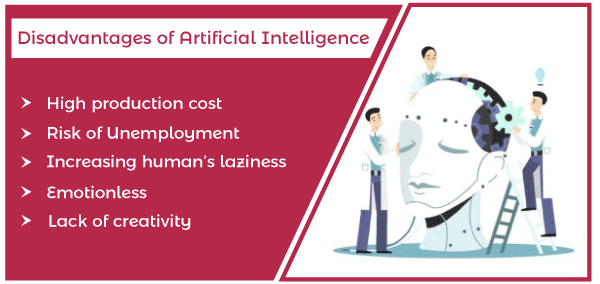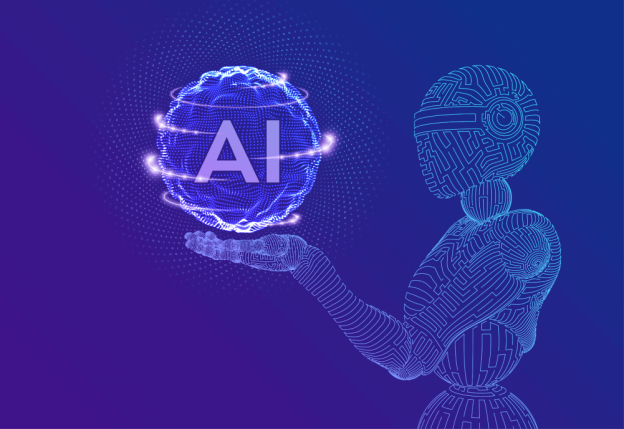So, you’ve probably heard a lot about artificial intelligence (AI) and its incredible potential to revolutionize industries and transform our daily lives. But, like any emerging technology, AI has its limitations. In this article, we’ll take a closer look at the three major limitations of AI that experts have identified. From the boundaries of narrow AI to the lack of common sense reasoning and ethical concerns, these limitations highlight the challenges that need to be addressed for AI to truly fulfill its promise. So, let’s dive in and explore the fascinating world of AI limitations.
1. Limited Learning Capabilities
Artificial Intelligence (AI) has revolutionized various industries and transformed the way we live and work. However, it is important to recognize that AI still has its limitations. One of the major limitations is its limited learning capabilities.
1.1 Supervised Learning Restrictions
Supervised learning, which is one of the most common approaches in AI, relies heavily on labeled data to make predictions or decisions. While this approach has proven to be effective in many applications, it comes with certain restrictions. The accuracy and reliability of AI systems heavily depend on the quality and quantity of labeled data available for training.
Furthermore, supervised learning requires a significant amount of human involvement to label the data. This process can be time-consuming and expensive, especially when dealing with large datasets. The reliance on labeled data also limits the AI system’s ability to learn from unstructured or unlabeled data, hindering its performance in situations where labeled data is scarce.
1.2 Lack of Contextual Understanding
Another limitation of AI is its lack of contextual understanding. AI systems excel at processing vast amounts of data and identifying patterns but struggle to grasp the subtle nuances of human communication and context. Understanding human language, emotions, and sarcasm, for instance, remains a challenge for AI systems.
Contextual understanding is crucial in various fields where AI is implemented, such as customer service or healthcare. Without a deep understanding of context, AI systems may misinterpret or provide inaccurate responses, leading to potential misunderstandings or errors.
1.3 Data Bias Issues
Data bias is a significant concern when it comes to AI systems. AI algorithms rely on historical data to make predictions or decisions. However, if historical data is biased, it can perpetuate and amplify biases in the AI system’s outputs.
When training AI systems, biases within the data, such as racial or gender biases, can inadvertently be learned by the algorithms. This can result in discriminatory or unfair practices when the AI system is deployed. If AI systems are trained on biased data, it can reinforce existing societal biases and further marginalize certain groups.
To overcome these limitations, it becomes imperative to ensure that AI systems are trained on diverse and unbiased datasets, while also integrating ethics and fairness into the development process.

This image is property of apacentrepreneur.com.
2. Ethical Considerations
In addition to the technical limitations, there are also important ethical considerations that need to be addressed in the development and use of AI systems.
2.1 Algorithmic Bias and Discrimination
Algorithmic bias refers to the discriminatory outcomes generated by AI systems due to biased training data or flawed algorithms. It is essential to recognize that AI models are only as unbiased as the data they are trained on. If the training data includes biases, the AI system can inadvertently amplify and perpetuate these biases, leading to discriminatory outcomes.
Addressing algorithmic bias requires a comprehensive examination of the training data, algorithm design, and continuous monitoring of the AI system’s outputs. Additionally, promoting diversity and inclusivity within AI development teams can help mitigate bias and ensure a more equitable outcome.
2.2 Responsibility and Accountability
With the increasing integration of AI systems in critical areas like healthcare, transportation, and finance, the issue of responsibility and accountability becomes paramount. When AI systems make decisions that affect individuals or society, it is crucial to identify who should be held responsible in case of errors or adverse outcomes.
Determining responsibility can be challenging due to the complex nature of AI systems, involving multiple stakeholders throughout the development and deployment process. Establishing clear guidelines and frameworks for accountability is essential to ensure that AI systems are used responsibly and that individuals affected by their decisions have recourse in case of harmful outcomes.
2.3 Privacy and Security Concerns
AI systems often rely on large quantities of personal data to provide personalized experiences or make informed decisions. However, this reliance on data raises significant privacy and security concerns. Protecting sensitive information and ensuring that it is not misused or accessed without consent is crucial in an AI-driven world.
Data breaches or unauthorized access to AI systems can have severe consequences, including identity theft or manipulation of personal information. It is essential for organizations to implement robust privacy and security measures, such as encryption and secure data handling practices, to safeguard user privacy and protect against cyber threats.

This image is property of vroc.ai.
3. Lack of Common Sense and Creativity
While AI systems excel at processing and analyzing vast amounts of data, they still struggle with common sense reasoning and creativity.
3.1 Understanding Ambiguity and Context
Understanding ambiguity and context is a skill that humans possess naturally but poses a significant challenge for AI systems. AI often struggles to interpret ambiguous statements or grasp the implicit meaning behind human communication. This limitation becomes apparent in tasks like natural language processing and understanding humor or irony.
Additionally, AI systems may struggle to comprehend situations where context plays a pivotal role. Understanding the context is vital to provide appropriate and accurate responses in various domains, including legal, medical, or social interactions. Without this contextual understanding, AI systems may produce irrelevant or misleading outputs.
3.2 Generating Original Ideas and Solutions
Creativity is a uniquely human trait that remains beyond the capabilities of AI systems. While AI can generate solutions based on existing patterns and data, it struggles to produce innovative and original ideas. The ability to think outside the box, connect seemingly unrelated concepts, and come up with new solutions to problems is still exclusive to humans.
Creativity is crucial in fields like art, design, and scientific research, where innovation and uniqueness are highly valued. AI systems may assist in these domains by augmenting human creativity, but they are unlikely to replace the creative abilities of human beings.
3.3 Unpredictable and Unintended Reactions
AI systems operate based on pre-defined algorithms and training data. However, they are susceptible to producing unpredictable or unintended reactions in certain circumstances. The lack of common sense reasoning and contextual understanding can lead to unexpected outcomes, especially when faced with novel situations or edge cases.
These unforeseen reactions can have serious consequences in safety-critical domains like autonomous vehicles or healthcare. Ensuring that AI systems are thoroughly tested and can handle unforeseen scenarios is essential to prevent accidents or harmful outcomes.
In conclusion, while AI has made remarkable advancements and transformed various industries, it still possesses limitations that need to be acknowledged and addressed. These limitations include limited learning capabilities, ethical considerations, and a lack of common sense and creativity. By understanding these limitations, we can strive towards developing AI systems that are more robust, fair, and reliable, while harnessing the power of AI to benefit humanity.

This image is property of static.javatpoint.com.
